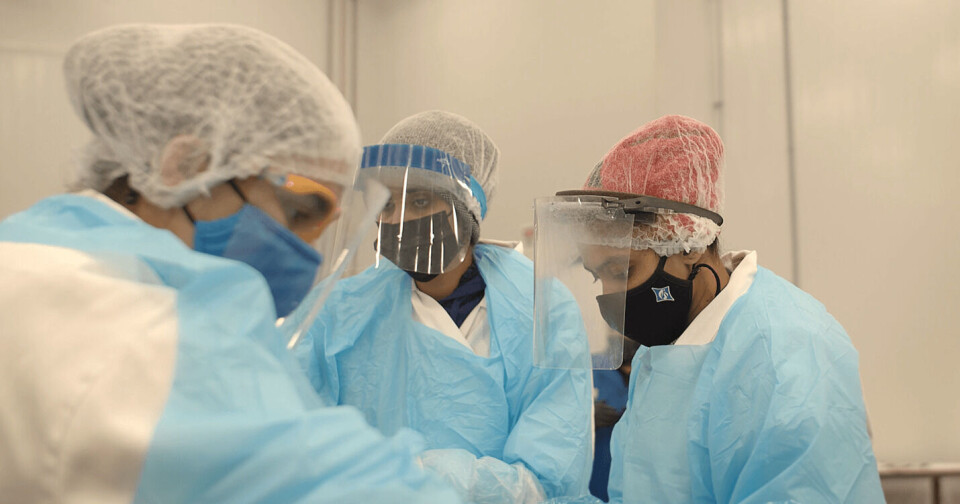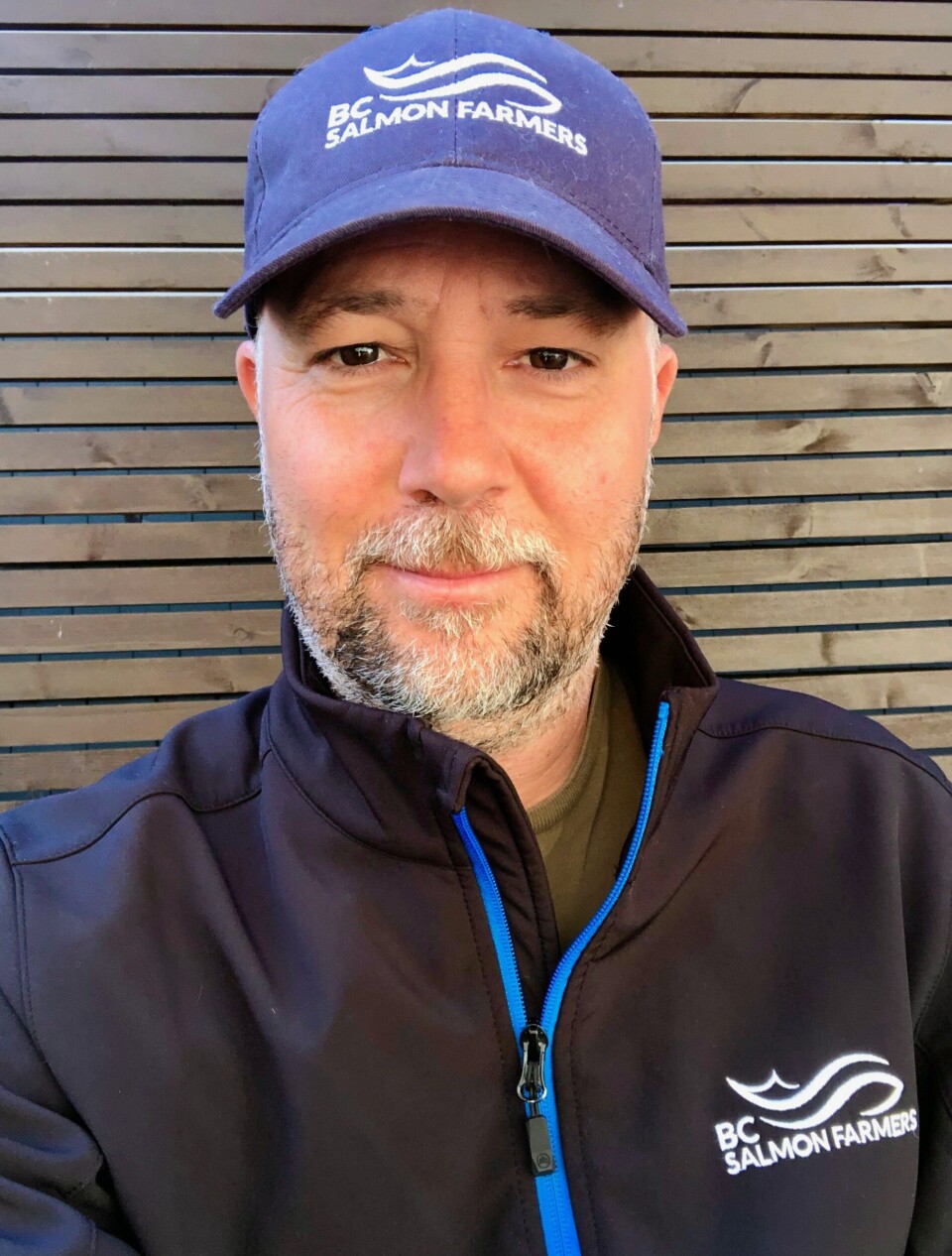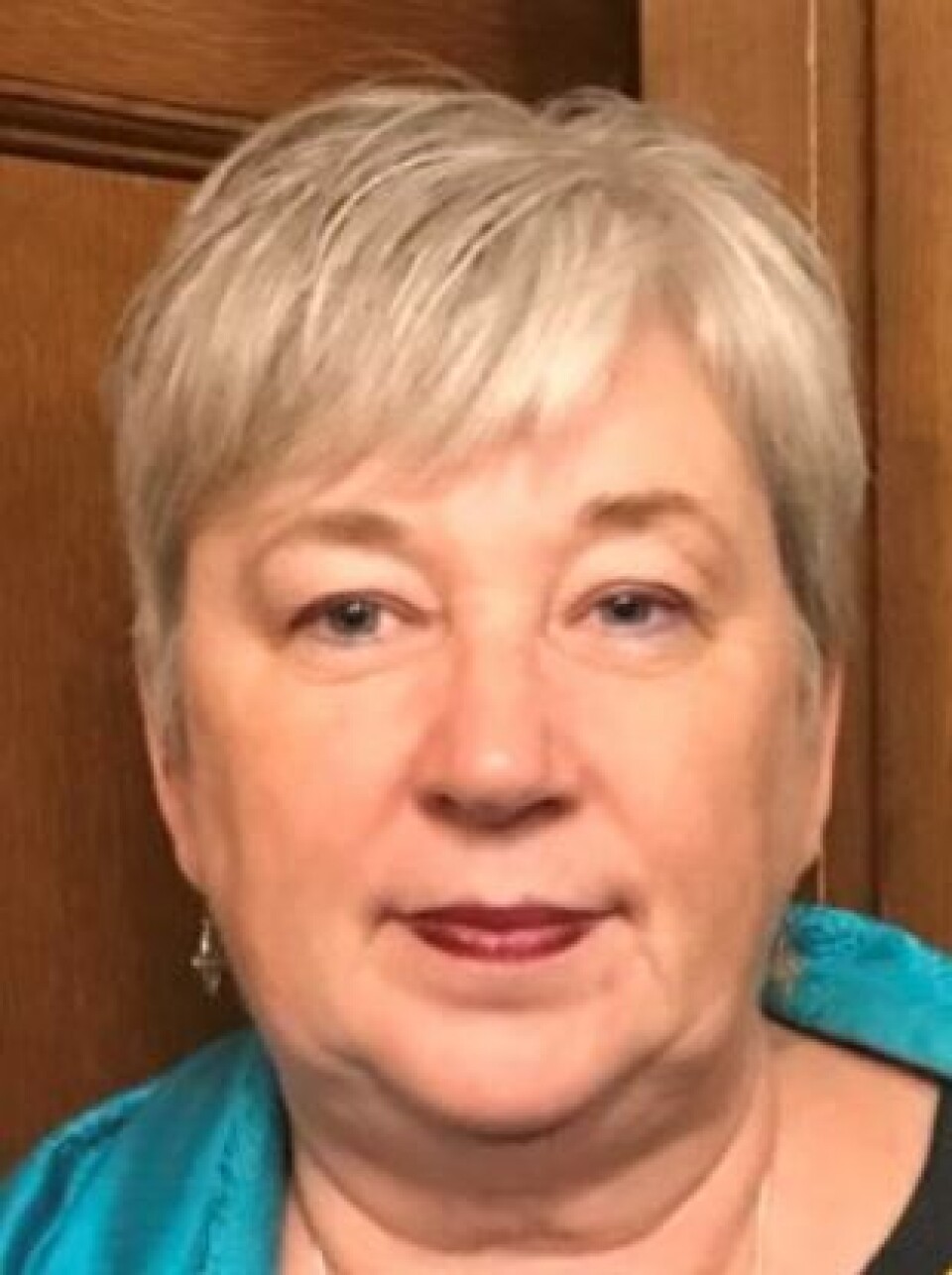
Hundreds of urban jobs at risk from BC farm closures
British Columbia’s salmon industry today turned the spotlight on to urban workers to highlight the impact of a federal government decision to close 19 salmon farms in the Discovery Islands region off Vancouver Island’s west coast.
To date the focus has been on number of people who will lose their jobs in the rural Campbell River area, but economic analysis commissioned by the BC Salmon Farmers’ Association (BCSFA) has concluded that hundreds of urban jobs will also disappear.
While Campbell River is Canada’s salmon farming capital, Surrey is the hub of salmon farming in Metro Vancouver, home to numerous operations in salmon feed milling, fish processing, trucking, packaging, and the provision of goods and services.

Extensive supply chain
“The salmon farming industry in BC is interconnected, with an extensive supply chain,” said BCSFA executive director John Paul Fraser.
“Closing our farms in the Discovery Islands shuts down a quarter of our production in BC, which significantly reduces how much feed is needed, how many fish will be coming into the processing plants, packaging, the number of trucks needed to transport fish, and shipping. Much of this work is done in Surrey.”
The BCSFA released the report today prepared by RIAS Inc., an independent economics firm, analysing how the federal government’s farm closures decision puts jobs and economic development at risk in Surrey. This analysis (the “Surrey Supplement”) is a companion to a larger report by RIAS Inc. released February 23, 2021 titled, “Consequences of the Decision to Shut Down Salmon Farming in the Discovery Islands”.
Direct economic impact
RIAS Inc. found salmon farming companies have direct economic impact in Surrey from fish processing, feed milling, truck transportation, packaging, and warehousing and distribution operations in that municipality.
Direct impacts within Surrey attributed to salmon farming companies include $220 million in annual revenue, $46m in gross domestic product, 344 full-time jobs and $24m in annual salaries.
“The report very likely underestimates the impact of salmon farming in Surrey,” said report author Doug Blair, an economist.
“It doesn’t account for the likelihood that the impact in Surrey will be outsized as the salmon farming industry faces a 24% decline in production, it will be forced to consolidate processing operations on Vancouver Island to maintain economies of scale.
“What is clear, however, is that a substantial number of jobs will be lost in Surrey as salmon farmers attempt to adapt to the impacts of the federal Liberal government’s Discovery Islands decision over the next year.”

More time
Fisheries minister Bernadette Jordan announced the closure of the Discovery Island farms on December 17 last year, following consultations with First Nations in whose traditional territories the farms are sited. The Nations are concerned that fish farming harms wild salmon stocks, despite nine separate studies all concluding that salmon farms pose only a minimal risk.
Fish farmers have until the end of June next year to harvest the sites and remove infrastructure from the water.
Those involved with the industry are asking that the closure decision be set aside to give everyone with a stake in salmon farming time to develop a plan to minimise its impacts.
Salmon farmers are asking the government to bring all parties together in an inclusive and transparent process to find a better way forward and create unity in communities.
Uncertainty for workers
Nav Nijjer, owner of Surrey company Shoreside Workforce, said: “This decision happened so fast; it’s already starting to impact my people working in fish processing. I think the biggest thing for us is the uncertainty that it brings for our Surrey workers. We haven’t been given any information and now my people are left wondering if they’ll have a job in a few months.”
Ravi Jouhal, general manager of SureCold Refrigerated Storage, said: “Everyone’s concerned. I get questions every day from my team asking about the future. I don’t have answers, we don't know what's going to happen.
“I was born and raised here in Surrey and knowing how important the salmon farming sector is to our community makes this situation that much tougher.”























































